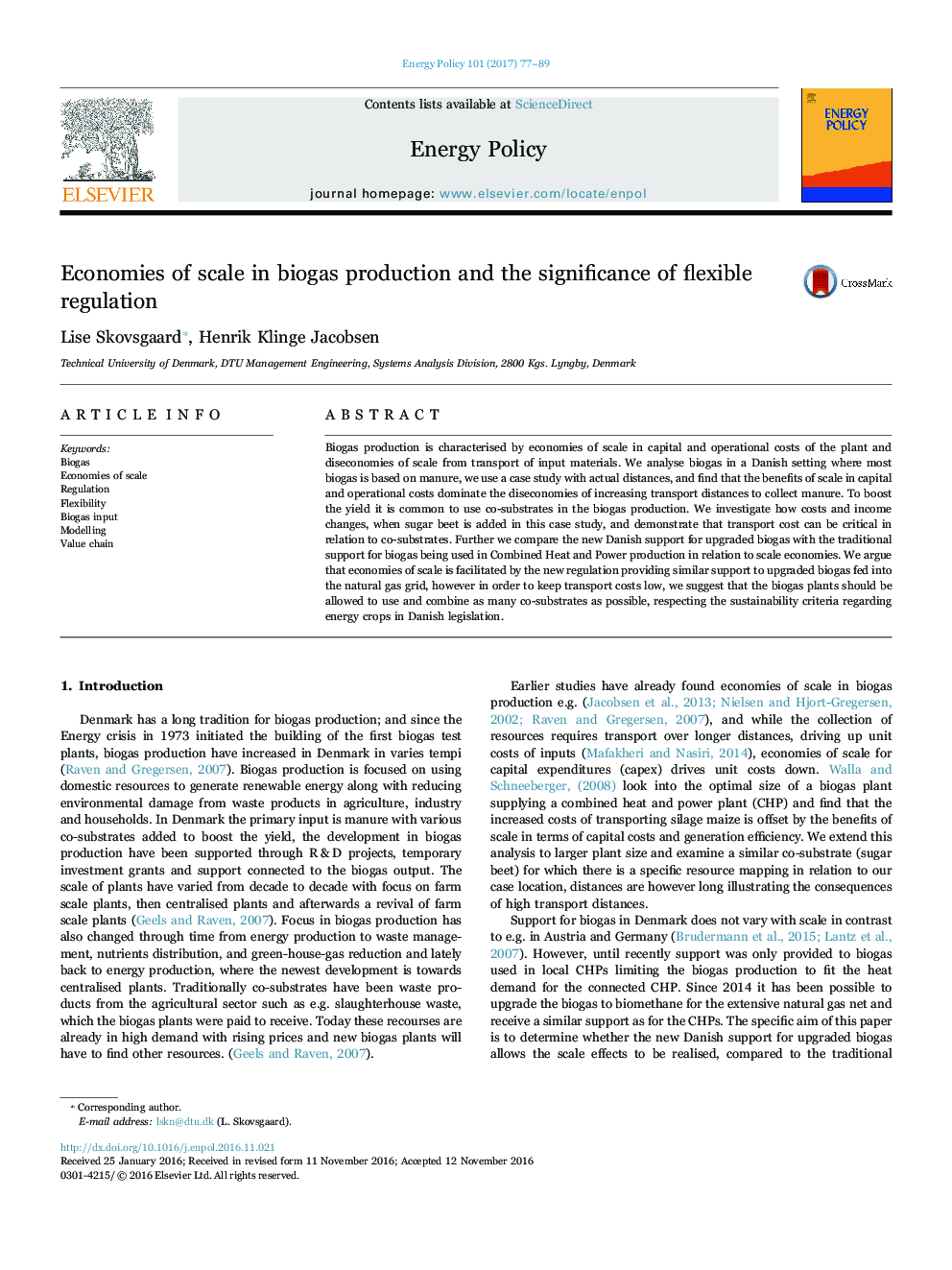| Article ID | Journal | Published Year | Pages | File Type |
|---|---|---|---|---|
| 5105999 | Energy Policy | 2017 | 13 Pages |
Abstract
Biogas production is characterised by economies of scale in capital and operational costs of the plant and diseconomies of scale from transport of input materials. We analyse biogas in a Danish setting where most biogas is based on manure, we use a case study with actual distances, and find that the benefits of scale in capital and operational costs dominate the diseconomies of increasing transport distances to collect manure. To boost the yield it is common to use co-substrates in the biogas production. We investigate how costs and income changes, when sugar beet is added in this case study, and demonstrate that transport cost can be critical in relation to co-substrates. Further we compare the new Danish support for upgraded biogas with the traditional support for biogas being used in Combined Heat and Power production in relation to scale economies. We argue that economies of scale is facilitated by the new regulation providing similar support to upgraded biogas fed into the natural gas grid, however in order to keep transport costs low, we suggest that the biogas plants should be allowed to use and combine as many co-substrates as possible, respecting the sustainability criteria regarding energy crops in Danish legislation.
Related Topics
Physical Sciences and Engineering
Energy
Energy Engineering and Power Technology
Authors
Lise Skovsgaard, Henrik Klinge Jacobsen,
